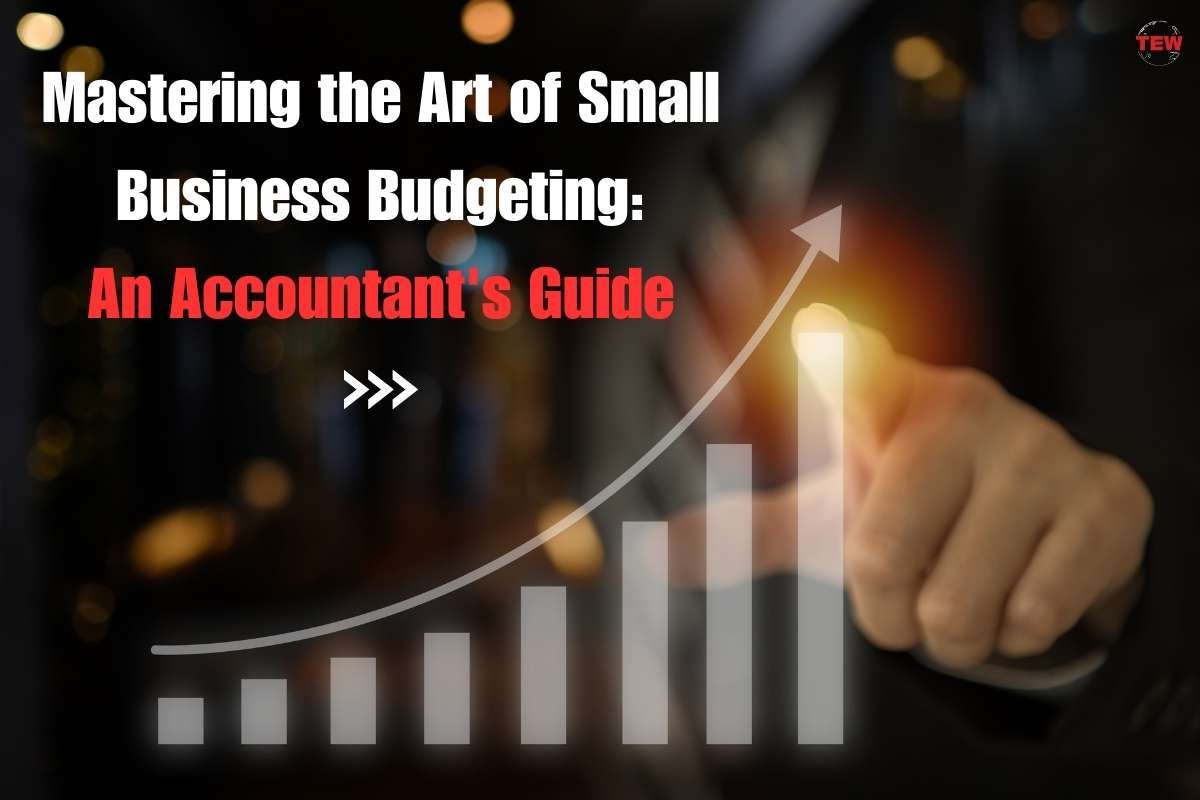In the thrilling world of entrepreneurship, creating and managing small business budget effectively is a keystone to financial stability and overall success. As Benjamin Franklin once observed, “Beware of little expenses. A small leak will sink a great ship.” This adage holds true for small business owners, particularly those seeking to establish a robust financial foundation. Armed with a budget, you can strategically plan, make informed decisions, and predict potential hurdles that may hinder your profitability.
Here is an accountant’s guide small business budget:
1. The Power of small business budget

Before we delve into the nuts and bolts of creating a small business budget, it’s crucial to understand the compelling benefits it offers. A budget is not merely a financial tool. It is a roadmap that directs you toward your business objectives, a magnifying glass that allows you to scrutinize your income and expenditure, and a safety net that cushions the impact of unexpected financial setbacks.
2. Understanding the Financial Health of Your Business
A budget’s power lies in its capacity to reveal the true financial health of your business. Like a snapshot, it captures your business’s income and expenses over a certain period. This allows you to discern financial trends, manage cash flow more efficiently, and make well-informed fiscal decisions.
3. Crafting Your Budget: Key Components
Now that we’ve established the importance of budgeting, let’s explore the essential components of a budget. These fundamental elements are your revenue, fixed costs, variable costs, and one-time expenses.

- Revenue: Your revenue constitutes the backbone of your budget. It represents the income your business generates from selling goods or services before any expenses are deducted. Accurate revenue forecasting is a skill that requires historical sales data, an understanding of market trends, and a dash of educated guesswork.
- Fixed Costs: These are regular, predictable expenses that your business incurs regardless of its level of output. They include rent, salaries, insurance, and utilities.
- Variable Costs: These costs fluctuate based on your business’s level of activity. Examples are direct labor costs, raw material costs, sales commissions, and shipping costs.
- One-time Expenses: These refer to infrequent or unplanned costs, such as the purchase of new equipment or emergency repairs.
4. A Step-by-Step Guide to Creating a Small Business Budget
The path to a successful business is paved with a well-planned budget. We outline a step-by-step guide to help you construct a budget tailored to your business’s unique needs.
- Analyze Your Revenue: Begin by calculating your total monthly revenue. This includes sales and other sources of business income.
- Identify Your Fixed Costs: List all of your fixed expenses. This will provide clarity about the minimum amount you need to keep your business operational.
- Determine Your Variable Costs: Analyze your past financial statements to predict your variable expenses. Remember, these can fluctuate depending on your business activity.
- Plan for One-time Expenses: If you foresee a significant one-time expenditure in the near future, such as a capital purchase, include it in your budget.
- Pull it all Together: Now it’s time to pull all the pieces together. Subtract your total expenses (fixed, variable, and one-time) from your total revenue to calculate your net profit or loss.
While managing a small business budget might seem overwhelming, especially for business owners without a financial background, it is worth considering outsourcing this vital task to a professional bookkeeping service in Sydney. They bring expertise, efficiency, and an objective viewpoint to the table, providing essential support for businesses aiming to optimize their financial management.
5. Leveraging Technology for Budget Management

We live in a digital age where technology has a solution for almost every challenge. Budget management is no exception. Numerous software solutions can help streamline budgeting and provide valuable insights. Tools like QuickBooks, Xero, and FreshBooks offer features that can automate budgeting tasks, track income and expenses, generate financial reports, and assist in cash flow management.
6. The Role of Budget Review and Adjustment
A budget is not a static document. It is a dynamic tool that requires regular review and adjustment to reflect changes in business conditions, market dynamics, and financial performance. Regular reviews allow you to compare your budgeted figures with actual results, facilitating prompt adjustments when necessary.
7. Future-Proofing Your Business with a Budget
Beyond its traditional role as a financial management tool, a budget is a strategic asset that empowers you to future-proof your business. It not only helps in making data-driven decisions but also aids in identifying opportunities for growth and diversification. Moreover, a well-prepared budget demonstrates financial diligence, a factor that can enhance your business’s credibility in the eyes of potential investors, lenders, and partners.
In conclusion, the art of creating a business budget revolves around understanding your financial situation, forecasting with a measure of accuracy, incorporating your business goals, and continuously reviewing and tweaking your small business budget. Remember, budgeting is not about restriction, but about creating freedom and providing a pathway for your small business to flourish and succeed.




